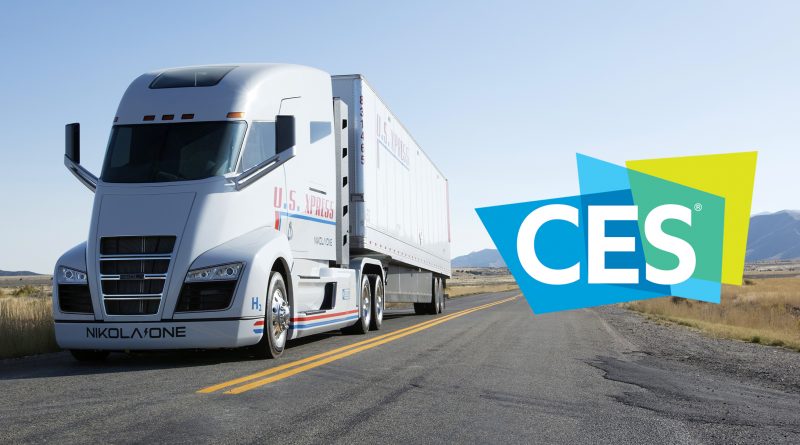Why Is CES Relevant to the commercial vehicle industry? Tim Campbell analysis
Before I look at a review of the products and vehicles on display at the Consumer Electronics Show (CES 2020) in Las Vegas this week, I thought it maybe worthwhile jotting down a few reasons as to why CES is relevant to today’s commercial vehicle industry.
Basically ‘Why CES has relevance?’
There was a time that if you wanted to know the direction in which the commercial vehicle market was going, you went to a truck or van show (Oh, how passé!).
As we celebrated in the New Year not too long ago, we also welcomed in a new decade – a decade that I am convinced will bring considerable change to our industry.
Now many may laugh, but I’d also like to point out that many laughed when diesel was proposed instead of steam or how a moving kettle could possibly take over from the age-old power and might of trusty Trigger the Clydesdale.
Please don’t be naïve in thinking that if you are currently reading this in the darkest corners of our fair land (the UK) or in rural Utah and you run a commercial truck or van that you will avoid this wide-reaching reform.
There is no escape and you will be involved – either directly or indirectly. Perhaps nothing more adequately demonstrates this change than CES.
First of all, let’s not kid ourselves this is a geek’s show for high level consumer products such as dog-walking hoovers or voice deactivator switches for wives that you read about in magazines such as T3 or Wired…or dream about.
That was until 2018, when the global players in trucks and vans, and definitely more importantly the forward-thinking potential disruptors (a fancy word for new age competitors) decided to show off their wares.
They were already playing in the field of autonomy, connectivity and lithium batteries not necessarily in commercial vehicle industry, indeed not even in the automotive sector but they have quickly realised their skill set and knowledge could translate into the automotive sector and the direction it is heading over the next the decade.
Or should I say more accurately, forever.
In 2019, Daimler Trucks (the parent of Mercedes-Benz, Fuso and Freightliner) used the event to demonstrate its commitment and recognition that a sea change has occurred within the automotive sector and that the commercial vehicle industry was not immune to this change.
It also acknowledged that the truck industry, while joining the masses onto the highway of change, may have a slightly different speed and direction than the other automotive sectors, including vans.
Daimler showed the physical proof this was happening in the shape of electric versions of the Fuso Canter, Freightliner Cascadia tractor and Freightliner M2 rigid.
However, it wasn’t alone. Other players such as Paccar (parent of DAF and Kenworth) were present with both electric and fuel cell products (Paccar working together with Toyota in this area) as well as a plethora of start-ups in truck autonomy, connectivity and electrification.
Fast forward a whole 12 months (even a week is a long time in road transport) to 2020 and we see players such as Paccar, Ryder, Nikola, Tesla, plus AI and many more show off their vision of the commercial vehicle future and its certainly nothing like the previous decades vision.
If you want to more about CES 2020, than read my reviews on each stand and also a piece on the Nikola-Ryder initiative displayed at CES.
Tim Campbell is the Managing Director of Campbells Consultancy, a globally-renowned consultancy company dedicated to the electrification of the commercial vehicle industry and publishers of Electric Van & Truck.
You may contact Tim by telephone (+44 1772 286225) or email (tim@campbellsconsultancy.com) or, alternatively, visit his company’s website (www.campbellsconsultancy.com).

